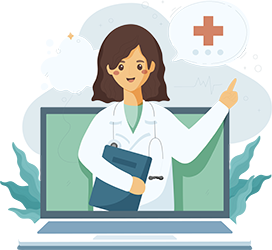This can lead to an overall experience that feels less meaningful and impactful, prompting some users to question whether mixing the two is worth it. Psilocybin belongs to the same group of psychedelics as the commonly known hallucinogen LSD and is structurally similar to DMT. At certain dosages, psilocybin and it’s fellow psychedelic drugs can alter our perception and cause feelings of detachment and euphoria. Some individuals use alcohol as a way to mitigate potential anxiety or discomfort caused by taking mushrooms.
Danh Mục
Does Alcohol Enhance the Effects of Shrooms?
- This can develop into psychological dependence if the person feels they cannot achieve the same effects without using both substances.
- However, no serious or life-threatening complications are expected from this combination.
- The effects of Psilocybin can lead to deep introspection, spiritual experiences, or, in some cases, feelings of euphoria.
- When you combine alcohol and shrooms, you’re creating a cocktail of unpredictable effects.
Attempting to self-medicate with hallucinogens is incredibly risky and can lead to a host of other problems. If you’re looking for support in changing your relationship with alcohol, there are much safer, evidence-based methods and programs designed to help you. It causes hallucinations as it acts on serotonin receptors in the brain and other areas of the body.
Physical health risks:
Moreover, it’s never a good idea to mix them with alcohol — no matter what the context might be. Consuming both substances can lead to an unpredictable and potentially dangerous outcome. It’s important to understand the potential risks of combining the two substances and to be aware that mixing the two can be a risky endeavour. When combined, these effects may become more severe and could lead to dehydration or choking hazards if not properly managed. Additionally, the cognitive and coordination impairment caused by both substances can become more pronounced when mixed, increasing the risk of accidents or injuries. In addition, the combination of shrooms and alcohol may intensify emotional states such as anxiety or depression, potentially triggering negative experiences during a trip.
The effects of mixing mushrooms and alcohol
A hallucinogen is a psychoactive substance that produces an altered state of consciousness. Some people report a deep sense of introspection, whereas others can experience auditory or visual hallucinations. It’s possible to experience heightened anxiety or confusion, particularly if you find yourself in an unfamiliar or anxiety-provoking environment. Alcohol consumption can significantly impair motor skills and coordination, resulting in slower reflexes, unsteady movement, and slurred speech. Long-term, excessive drinking can cause severe damage to the liver, brain, and other vital organs.
Many people who consume psilocybin mushrooms report feeling more connected and aware of their feelings and emotions, while some report having mystical experiences. It is not uncommon to feel wonder, awe, immense gratitude, or feelings of calm non-attachment. Upon ingestion of psilocybin mushrooms and alcohol, their combined immediate physical effects can include increased heart rate, fluctuating blood pressure, and heightened sensory perceptions. There are many reports of people using psilocybin mushrooms to deal with addiction, and quite successfully in some cases. Drinking alcohol while on shrooms is generally not recommended by doctors due to the unpredictable results of this combination. Shrooms, or magic mushrooms, are hallucinogenic and can distort one’s perception of reality, while alcohol is a depressant that alters the nervous system.
Can You Mix Shrooms and Alcohol?
For this reason, many people use shrooms at the same time as alcohol, although there may be serious adverse effects as a result. 50% of participants in the psilocybin arm of this study were no longer drinking at the end of the trial. However, it is it safe to combine alcohol and shrooms probably, but is vital to carefully consider whether the simultaneous use of shrooms and alcohol aligns with one’s intended experience, as preferences can vary significantly among individuals. It is important to ensure that the chosen approach complements one’s desired outcome before embarking on this combination. People experiencing a bad trip or a psychologically challenging drug experience may want to contact a doctor. They can cause hallucinations and an inability to tell the difference between fantasy and reality.
- This can lead to negative consequences such as increased heart rate, loss of consciousness, and a higher risk of a “bad trip”, which includes frightening hallucinations and emotions.
- The combination of caffeine and psilocybin can have varying effects on cognitive and physical performance, depending on the dosage and individual tolerance.
- Interestingly, researchers suggest that psilocybin, the active drug in shrooms, may help people with alcohol addiction.
- Alcohol can muddy your emotional state and impair your ability to think clearly, making it much harder to steer yourself out of a negative headspace if the trip starts to turn sour.
- The impaired self-awareness caused by hallucinogens can prevent individuals from realizing how much alcohol they have consumed, leading to a higher risk of alcohol poisoning.
Side Effects of Psilocybin and Alcohol
In addition, the social and environmental consequences of consuming shrooms can be amplified by alcohol. Shrooms often cause heightened sensitivity and introspection, making users more sensitive to their environment. Alcohol’s disinhibiting properties can cause people to act in ways that are not conducive to the ideal psychedelic trip atmosphere, potentially leading to misunderstandings or conflict. Both substances can cause anxiety, and combining them can enhance these effects, potentially leading to panic attacks or increased feelings of unease and discomfort. Both alcohol and shrooms have the potential to cause gastrointestinal distress, such as nausea and vomiting. Mushrooms may help when they are adaptogens — substances that help the body adapt to stressors to return to a level of homeostasis (or, balance within the mind and body).
Physical Risks
Once your water is around the right temperature, pour it into your teapot or mug over the tea. Reframe supports you in reducing alcohol consumption and enhancing your well-being. The Reframe app equips you with the knowledge and skills you need to not only survive drinking less, but to thrive while you navigate the journey. Our daily research-backed readings teach you the neuroscience of alcohol, and our in-app Toolkit provides the resources and activities you need to navigate each challenge. Charley, our esteemed reviewer, brings a deep commitment to healing work, mindfulness, and nurturing human potential.
Users often report vivid visual and auditory hallucinations, a distorted sense of time, and profound changes in their perception of reality. Alcohol Use Disorder (AUD) is the clinical term for what many people call alcoholism. It describes a pattern where someone can’t control their drinking, even when it causes significant problems in their life. You might also experience physical withdrawal symptoms, like nausea or a racing heart, when you try to cut back.
We’ll go over what psilocybin and alcohol are and how they affect the body in this article. We’ll also look at the research on combining psilocybin with alcohol and check in on the relative risks. In both medical research and everyday life, the discussion of psychedelics (including psilocybin) has grown increasingly accepted during the last two decades.







